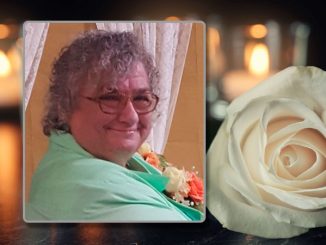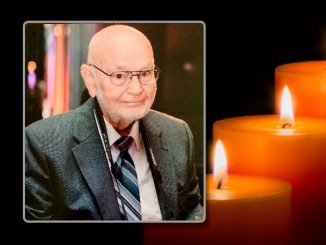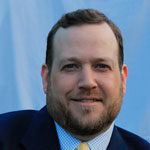
Tim Barfield explains Gov. Jindal’s ‘revenue neutral’ bills
At the same time Revenue Secretary Tim Barfield was playing a lead legislative role for Gov. Bobby Jindal this session, primarily trying to make sure lawmakers avoided a net tax increase, other politicos were encouraging him to run for mayor of Baton Rouge.
Barfield, who was charged by Jindal with playing point on revenue and tax bills this year, confirmed the recruitment effort over a lunch of chicken parmesan poboys at Digiulio Brothers, just four miles outside the shadow of the Capitol.
“I’ve never had any interest in running for public office,” he said, fiddling with the sugar packets on the table, then looking up. “My wife, even less so.”
Soft-spoken at times, Barfield is a product of the Jindal brand, having previously served as the governor’s executive counsel and as director of the Louisiana Workforce Commission. His full-time focus over the last two months or so has been on the session, balancing his position of revenue secretary with that of a special legislative liaison role.
When lawmakers had questions about whether bills satisfy the governor’s definition of revenue neutral, it was Barfield who issued the answers. It’s a complicated framework, where for every $1 raised in taxes by lawmakers, they had to attempt to cut a corresponding $1 from the budget.It was the session’s undoing in the final days and Barfield was at the center of the storm.
“I’ve met with the governor quite a few times this session, but I meet with his staff daily,” said Barfield. “The biggest challenge has been trying to get a compromise that the administration finds acceptable and that is acceptable with the House and Senate. It’s like getting Mars and Jupiter and the moon in line. You need a political solution for the Legislature and we want a practical solution that doesn’t have the state making cuts in six months.”
Critics complained that Barfield was pushing a plan that places Louisiana in a zero sum game, where revenue equals reductions.
But lawmakers also said they appreciated Barfield’s approach to negotiations, with many citing his corporate background. He was previously CEO of The Shaw Group and chief development officer for Amedisys.
Is a return to the private sector in the cards for Barfield as Jindal’s term comes to an end, or at least in the foreseeable future?
“I think that’s very likely,” Barfield said. “I’m really focused on getting through this session. There will be time later to sit down and look at all of the options.”
The Politics Behind TIMED
In March of 1989 the Louisiana Legislature approved a plan that was later backed by voters to implement a 4-cent gas tax increase to bankroll 16 infrastructure projects.
Since then, especially recently, the TIMED program has been met with widespread criticism that transportation priorities are not being satisfied, that it overlooks important projects and there’s not enough money to finish the original vision voters approved. Cash is actually being diverted away from the regular, rank-and-file projects to keep TIMED afloat.
How did this happen?
Well, at least partly, politics are to blame. As House Transportation Chair Karen St. Germain, D-Plaquemine, explains it, votes were bought to pass the TIMED program in the late 1980s when Buddy Roemer was governor.
“The first projects that were listed in TIMED were all about getting those legislators who you needed their votes to actually go and vote for it,” she said. “It was all done on the back of a napkin. There were meetings for that and that’s how it was done at the time.”
St. Germain, during her testimony before the Ways and Means Committee this month, said the legislative handlers at the time asked one question of the swing voters and handed them a pen: “What will it take to pass? Just write (a figure for your project) down and we’ll figure it out later.”
That’s how project costs were determined.
St. Germain pushed HB 778 this session, which fell short of the two-thirds vote it needed on the House floor. It would have levied a new .01 cent sales tax to expire in 10 years to construct 18 projects in critical corridors across Louisiana.
Campbell Talks Governor’s Race
“I’m not running,” said Public Service Commissioner Foster Campbell, getting that out of the way.
But what of north Louisiana, a turf Campbell knows well? He won re-election to the PSC’s north Louisiana district last year with 61 percent of the primary vote despite facing opposition from the Louisiana Association of Business and Industry.
From a regional perspective in the governor’s race, U.S. Sen. David Vitter, in the latest Southern Media and Opinion Research poll, performs best in north Louisiana. He carried 46 percent of the piney north region in the poll — 52 percent of the 4th Congressional District and 35 percent of the 5th District.
Campbell said he hasn’t heard of any candidates surfacing from north Louisiana and he suggested it could become competitive if all of the factors are right.
“Vitter doesn’t own north Louisiana. Someone could come up here and really make a connection,” said Campbell. “But I’m not hearing any of the candidates talk about those issues. If you leave north Louisiana alone and no one makes a real play for it, Vitter probably does pretty good.”
All of the candidates have visited north Louisiana. Public Service Commissioner Scott Angelle is the latest. He’s touring every parish in the region and recently launched a TV buy.
Campbell compared the political climate to his cattle, noting most of the candidates want to follow the path and policies of Gov. Bobby Jindal. Every now and then one of his cattle gets stuck in the mud and has to be pulled out or it’ll die, he said. But more times than not, the cattle will go back to the same exact spot and get stuck again.
“Here we got all these politicians going to the same damn mud hole,” Campbell said. “If we don’t try something different we’ll all be stuck.”
Geymann Looks To The Future
Having just hammered out what was thought to be an impossible compromise on Common Core, and with term limits awaiting him this fall, Rep. Brett Geymann, R-Lake Charles, is starting to open up a bit more about the future. His future.
Advocate reporter Will Sentell recently pointed out that Geymann was being mentioned as a possible candidate for the Board of Elementary and Secondary Education. But that can definitely be crossed off the list.
“I have no plans to run for BESE,” Geymann said, adding that he has been encouraged to be on the ballot.
What’s more likely is a run for Congress. But only if Congressman Charles Boustany, R-Lafayette, vacates the seat, which is always possible. Boustany is said to have an interest in the U.S. Senate should David Vitter win his bid for governor.
They Said It
“I guess the word ‘difficult’ comes to mind.”—Finance Chairman Jack Donahue, R-Mandeville, when asked to describe the current session “On June 11.”—Donahue, on how the session will end “I understand all the sword-rattling and things like that. But I’m asking senators not to throw any more stones.” —Senate President John Alario, R-Westwego, on the session’s final week “We’re in the silly season now.”—Rep. Sam Jones, D-Franklin, with seven days left in the session





Be the first to comment